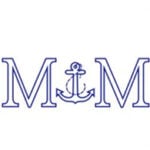-
What system of port state control applies in your jurisdiction? What are their powers?
The Administration for Shipping and Ports of the Ministry of Transportation is a statutory authority within the Ministry of Transport. The Administration supervises the Israeli ports (mainly located at Haifa, Ashdod, Eilat), responsible to marine traffic, licensing and registration of vessels, certification of seaman, supervises the safety of vessels, conducts ports state control, issues notices to mariners and acts as the Israeli representative in the international marine community.
As a member of the International Maritime Organization (IMO) since 1952, Israel conducts its Port State Control Inspection through the Port and Shipping authority.
Under Articles 99 and 100 of the Israeli regulations of Ports Safety (Vessels) and IMO’s Code for The Investigation of Marine Casualties and Incidents the Administration conducts investigations of marine casualty and issued reports. In the matter of Folio No. 67484-03-19 HDI GLOBAL ANTWERP and Others Vs. State of Israel and Owners of the M/V Diana, The Haifa District Court accepted the claim we have filed and ordered that the Administration will disclose to the foreign cargo-interests with the RCC communications which took place between the distressed M/V Diana and the RCC centre at Haifa Port prior to its grounding on 19th Jan 2018, 250 meters from Haifa Bay shore and which were collected by the Authority while investigating the incident. Court’s reasoning was cargo interests’ entitlements to receive information collected by the Administration regarding their interests (their cargo which was damaged as a result of the grounding) following the Israeli Freedom of Information Act-1998 and the Arbitration Act- 1968, in view of the London Arbitration handled between the cargo interests and Owners and having the matter open for further discloser if so will be ordered by an arbitral awards.
-
Are there any applicable international conventions covering wreck removal or pollution? If not what laws apply?
Pollution:
Israel is a signatory party to the Convention for the Protection of the Mediterranean Sea against Pollution 1978 and re-affirmed its updated version as the Convention for the Protection of the Marine Environment and the Coastal Region of the Mediterranean, 1995.
In addition, Israel joined MARPOL in 1983 and has re-affirmed Annexes 1, 2, 3 and 5.According to the Haifa Maritime Courts’ judgment in the matter of Moraz Shipping Vs. Israel Port Company (detailed hereto in clause 5), It seems that damages caused by a polluting vessel will not be limited under a limitation fund.
A claim filed the SIPG’s port for economic losses caused as a result of oil leak from a polluting vessel, claiming loss on income expected during the time cleaning operations took place and the pier was closed for discharge operations at an amount exceeding US$ 1.3 Million, claim was secured by a club’s Lou) and has been recently settled, after filing evidence, on October 2025 (SIPG Bayport Terminal Co. Ltd vs. M/V Zim Sao Palo).
Wreck removal:
The law relating to a distressed vessel, wrecks and lost merchandise is the Salvage Fee and Lost Merchandise Order of 1926. Under this order, whoever finds lost merchandise or discovers any wreck must inform the receiver of wrecks at the Authority for Shipping and Ports of the Ministry of Transportation who will publish a notice about the finding of same serve a copy of the notice to Lloyd’s agent in Israel or else to Lloyd’s offices in London. If the merchandise or the wreck is not claimed within six months, it will be sold by the Receiver of the Wreck and the balance from the sale after deducting salvage fee and expenses will be applied by the Minister of Treasury as part of the national income.
-
What is the limit on sulphur content of fuel oil used in your territorial waters? Is there a MARPOL Emission Control Area in force?
On August 2022 the Israeli legislator had validated the Ports Regulations (Preventing Air Pollution From a Vessel), 2022 which implement IMO’s Marine Environment Protection Committee’s decision dated 26.10.2018, (also known as the “IMO 2020” Rule) and order, inter alia, that it is the obligation of the owners and the master to make sure that the contents of sulphur in a vessel’s fuel which is used for the operation of the vessel will not exceed 0.50% m/m. If the vessel is operating in the emission control areas (ECAS) (Baltic Sea area, North sea area, North America area, U.S Caribbean Sea area and any other area declared by IMO) or if the vessel is at pier or any other mooring facility for the purpose of loading or discharging or waiting for same, not more than 0.10% m/m.
According to clause 123 (a) of the regulations (headed as “an examination following a foreign authority’s request”), by the request of the authorized authority of a foreign state, the manager nominated by the Administration for Shipping and Ports could make an examination in a vessel which is not an Israeli vessel while it is calling in a port or terminal in Israel – if the manager is convinced by the evidence attached to the application that the vessel has emitted, at any place whatsoever, any materials listed in part B of the regulations (including Sulphur Oxides) not in compliance to the instructions set out in the regulations.
-
Are there any applicable international conventions covering collision and salvage? If not what laws apply?
Collision:
Under the Ports Regulations (Prevention of Collisions), 1977, Israel has adopted the Convention on the International Regulations for Preventing Collisions at Sea 1972.
Salvage:
Under the Salvage Fee and Lost Merchandise Order of 1926, Article 19 (1), whoever salvaged a distressed vessel or its cargo is intitled to a “fair fee” which has to be paid by the owner of the vessel of or the receiver of the cargo, as the matter may be. Under Article 20 (1) any dispute in relation to the fair (salvage) fee if not settled by an agreement should be brought to arbitration. The Israeli law, under clause 42 (5) of the Shipping Act (Vessels) 1960, or clause 9 of the Admiralty Courts Act 1861 (which also governs the Israeli Admiralty Court’s authority) recognizes that debts due to salvage (either of the vessel and/or its cargo) and General Average constitute a maritime lien.
In addition, the Israeli Courts will consider customary law or foreign judgments when dealing with such matters
-
Is your country party to the 1976 Convention on Limitation of Liability for Maritime Claims? If not, is there equivalent domestic legislation that applies? Who can rely on such limitation of liability provisions?
Israel has adopted the International Convention Relating to the Limitation of Liability of Owners of Sea-Going Ships, Brussels 10 October 1957 and its amending Protocol, Brussels 1979, as part of the Shipping Act (Limitation of Liability of Sea-going Ships), 1965. The 1976 Convention is not adopted by Israeli law but might be considered as a customary law.
In the matter of Moraz Shipping Vs. Israel Port Company (2022), The Haifa Maritime Court considered the 1976 convention’s orders when deciding that an Owner of a vessel liable to an oil pollution incident -when oil leaked from the vessel and contaminated Haifa port’s area and facilities, will not be entitled to limit its liability, referring to Article 3 (b) of the 1976 convention listing “claims for oil pollution damage within the meaning of International Convention on Civil Liability for Oil Pollution Damage dated 29th November 1969 or of any amendment or Protocol thereto which is in force”, as excepted from limitation. The court applied the exception of Article 1 (c) of the 1957 convention (“damages to harbour works, basins and navigation ways”) and reasoned that not allowing the owners to limit its liability in the current matter would be in (also) accordance with the international law relating to the protection of the marine environment from oil pollution.
Owners can apply to the Maritime Court for the establishing of a Limitation Fund. If the Court will be satisfied with the Owner’s application it will order the establishment of the Limitation fund and will give orders as to the Owner’s deposit and the publishing of notices to Creditors. Creditor’s claims or participation claims are to be filed by a local creditor within 30 days. If the creditor is a foreign creditor, claims must be filed within 60 days.
-
If cargo arrives delayed, lost or damaged, what can the receiver do to secure their claim? Is your country party to the 1952 Arrest Convention? If your country has ratified the 1999 Convention, will that be applied, or does that depend upon the 1999 Convention coming into force? If your country does not apply any Convention, (and/or if your country allows ships to be detained other than by formal arrest) what rules apply to permit the detention of a ship, and what limits are there on the right to arrest or detain (for example, must there be a “maritime claim”, and, if so, how is that defined)? Is it possible to arrest in order to obtain security for a claim to be pursued in another jurisdiction or in arbitration?
Israel is not a party to either the 1952 or the 1999 Conventions.
The Israeli Maritime Court was established during the British Mandate over Palestine-Israel which took place formally between 1922-1948, and in-fact from the year 1917 and until 1948. By a King’s-Order-in-Council dated 2 February 1937 the Supreme Court of Jerusalem was constituted as a Maritime Court under the Colonial Court Admiralty Act, 1890. On the date when the Colonial Court Admiralty Act was enacted, the relevant acts of Admiralty which were in force were the Admiralty Acts of 1840 and 1861 and also the Naval Prize Act of 1864. These continue to apply to the Israeli Haifa Maritime Court’s (being a division of Haifa District Court) jurisdiction (which was granted the maritime jurisdiction formerly held by the supreme court) up to this present date.In addition, the Israeli legislator, when enacting the Israeli Shipping Law (Sea-going Vessels), 1960, in relation to maritime lien, has chosen to follow International Convention for The Unification of Certain rules of Law Relating to Maritime Liens and Mortgages, Brussels 1926.
Accordingly, there are two set of rules governing the Israeli Maritime Court: The English Admiralty Acts of 1840 and 1861 and the Israeli Shipping Law (Sea-going Vessels), 1960, which follows the 1926 Brussels Convention.Claims for damaged cargo or mis delivery constitute a recognized maritime lien either according to Clause 41 (7) of the 1960 Shipping act or Article 6 of the 1861 Admiralty Act. In the matter of M/V Ellen Hudig it was held, as obiter, that even consequential loss can be included under the lien (in that matter- costs and expensed the cargo interests has to pay for the continuation of the carriage after the carrying vessel stopped its voyage due to its detention following bankruptcy proceedings of its owners)
Following clauses 16 (a) and 39 A. of the Israeli Arbitration Act, 1968, a Court is authorized to order on supportive remedies such as liens and restraining orders in order to secure arbitration proceedings, including proceedings taking place in foreign jurisdictions. The Haifa Maritime Court, situated in the Haifa District Court, exercises this authority and will order on the arrests of the vessel even if the claim itself should be determined in arbitration or foreign jurisdiction.
Under folio no. 59972-07-19, M/V AQUIS PERLA, M/V MARE ZEN, (2019) The Haifa Maritime Court held that it is authorized to order on attachments on assets of the local defendant to secure a London Arbitration in relation to unpaid hire, following the above- mentioned orders of the Israeli Arbitration Act and with no need to enquire if English Arbitration Law does or doesn’t allow attaching of defendant’s assets.
-
For an arrest, are there any special or notable procedural requirements, such as the provision of a PDF or original power of attorney to authorise you to act?
There is no formal requirement for a POA, but in practice a POA is served with the Maritime Court. A copy scanned PDF is sufficient.
-
What maritime liens / maritime privileges are recognised in your jurisdiction? Is recognition a matter for the law of the forum, the law of the place where the obligation was incurred, the law of the flag of the vessel, or another system of law?
According to the Israeli Shipping Law (Sea-going Vessels), 1960 clauses 40-41 (1)-(8) the recognized maritime liens include, inter alia, the following: (1) the costs of the Court’s auction sale of an arrested vessel; (2) port dues of all kind and other payments for such port services as much as these payments are due either to the state, to another state, authority, or have been paid to them by a third party; (3) the cost of the preservation of an arrested vessel (from the date of its entry to the port and until its sale by the Court); (4) wages; (5) salvage; (6) compensations for death or injuries of passengers; (7) compensations for damages caused as a result of a collision at sea or any other navigation accident, or for damages done by a vessel to port facilities and indemnities for loss or damage to cargo or to passengers’ baggage; and (8) payments due for a supply of necessaries.
In the Supreme Court judgment in the matter of Grefin corporation Vs. Kur trading Ltd (the “Nadia S”), it was held that the existence of a maritime lien is a substantial matter and therefore it will not be decided according to the law of the forum, it will be decided by the “LEX CAUSA”. However, priorities between the liens will be governed by the “Lex Fori” as priority is a purely procedural. In practice, the Haifa Maritime Court implements the presumption of equality of law, meaning that unless provided with evidence as to a foreign law which is argued to apply on the matter, the court will decide according to the Israeli law.
-
Is it a requirement that the owner or demise charterer of the vessel be liable in personam? Or can a vessel be arrested in respect of debts incurred by, say, a charterer who has bought but not paid for bunkers or other necessaries?
Generally there is such a requirement., in the above mentioned matter of the M/V Ellen Hudig (2004) the Maritime Court denied the claim reasoning that as the detention of the vessel was due to bankruptcy proceedings and after these took place, the requirement for owner’s personal liability was not fulfilled.
Ever since, the Ellen Hudig matter has been cited by the Haifa Maritime Court as authority establishing the need to show owner’s liability in order to have the Court recognize a maritime lien. In the matter of M/V Emmanuel Tomasos (2004) the actual bunker supplier’s claim was denied reasoning that only the contractual supplier who contracted with the owners can be a creditor under the necessaries lien. In the matter of the M/V Nissos Rodos (2016) it was held that the local agent which was nominated by the operator of the vessel, and paid the port dues for the 17 calls of the vessel at Haifa Port is not entitled to the maritime lien for “port dues of any kind…been paid by a third party” reasoning that the agent had no agreement with the owners and that there was no personal liability on behalf of the owner to pay the agent, as commercial relations were between the owner and the operator and the operator and the agent, but not directly between the agent and the owner.
In the matter of M/V Captain Hurry (2016), while dismissing a suppliers’ claim due to a lack of owner’s liability, the Haifa Maritime Court mentioned that the maritime liens differ from each other and that, for example, the maritime lien for salvage exists even if the owners are not liable for the circumstances which led the vessel to distress.
n the matter of Moraz Shipping Vs. Israel Port Company (2022), The Haifa Maritime Court held that in order to establish Owner’s personal liability it is enough that those who acted on behalf of the owners are the ones’ who causes the damage. In that matter it was decided that the local managing company of the vessel did not conduct the crew and supervised the bunkering operations and that this omission of theirs which is attributed to the Owners and is another reason for denying owners application for a limitation found.
Therefore, a path to diversity in relation to the requirement of owner’s liability, might exist.
As the lien for necessaries is a contractual lien, where bunkers are ordered by the charterers only and no communication took place with the owner’s what so ever, a claim for an enforcement of the maritime lien will probably fail. However, if the charterer is in fact an entity related to the owners or if the supplier communicated directly with the owners when establishing the order, the American’ laws’ presumption that that charterers and their agents are presumed to have authority to bind the vessel by ordering necessaries unless an actual notice issued by the owners to the contrary (World Fuel Services Vs. M/V HEBEI SHIJUAH), can be argued. In the matter of M/V HUA YANG MEU GUI we were able to arrest the vessel in such a case providing for disclosure of the merits in the application. After, the matter was settled without countering the arrest.
-
Are sister ship or associated ship arrests possible?
Israel is not a party neither to International Convention Relating to Arrest at Sea 1952 (Brussels) nor to the International Convention on The Arrest of Ships 1999 (Geneva). In the matter of M/V Huriye Ana (2017) the Haifa Maritime Court held that he has no authority to order a “sister-ship arrest”.
In the matter of M/V OSOGOVO (2021) while denying a supplier’s arrest application for necessaries supplied to sister-ship vessels of the subject vessel, the Haifa Maritime Court mentioned that it does not deny the possibility that in the suitable matters it might be possible, to extend, under ‘judicial legislation, the causes for arrest and to include the possibility of arresting a “sister-ship”, but the current matter does not justify discussing in depth the possibilities of developing the maritime law.
In our opinion, it might be possible that by using the legal principles of justifying the lifting of the corporate veil to apply for a sister-ship arrest. However, such matters will be limited only to the existence of circumstances justifying the lifting of the corporate veil and provided the arrest application could provide at least prima-facia evidence in this regard.
-
Does the arresting party need to put up counter-security as the price of an arrest? In what circumstances will the arrestor be liable for damages if the arrest is set aside?
The arresting party is not required to put- any counter security when arresting the vessel. The Court is authorised to order on the deposit of a counter-security when issuing the arrest order. However, in the matter of M/V Tara Kaptanoglu it was held that the Court will exercise its ability on rare occasions such as when the documents which constitute the arrest application or under dispute and their validity is questioned.
In the matter of M/V Mania after we applied to the cancellation of the arrest which was ordered ex-parte, the court held that the (reduced) claim amount will be secured by a=- club LOU (on behalf of owners) and that claimants will deposit in court’s treasury an amount equal to 10% of the (reduced) claimed amount. Them atter is still pending.
There is no leading authority relating to the matter of wrongful arrest. Under the general civil law, a party seeking a temporary relief (such as a lien or restraining order) might be liable in tort or in a commitment emerging out of the Court’s order to compensate the other party for its damages if the temporary relief is cancelled and if the seeking party acted unreasonably or in malice (Civil Appeal 732/80 Arens Vs. Bait-El). It seems that when deciding on an application or claim for damages for wrongful arrest the Haifa Maritime Court will follow the Evangelismus Tests of 1858 as interpreted By the Court of Appeal of Singapore in the matter of M/V Vasiliy Golovnin (2008). A counter claim for wrongful arrest has been filed by ourselves on behalf of owners in the above-mentioned matter of M/V Mania, the matter is still pending.
-
How can an owner secure the release of the vessel? For example, is a Club LOU acceptable security for the claim?
A respected Club’s Lou is an acceptable security. Obviously, the owner can also deposit the claimed amount or an Israeli bank guarantee, in the Court’s treasury.
-
Describe the procedure for the judicial sale of arrested ships. What is the priority ranking of claims?
If no Notice of Appearance is filed on behalf of the vessel within 7 days after the service of the maritime-claims documents (including a writ of summons) the Court may order on the judicial sale of the vessel in order to save maintenance, port due and crew costs. According to the Vice Admiralty Rules, 1883, the court is authorized to order the vessel will be sold either by public auction or by private contract.
In the matter of MV AMS 1 when acting as the Liquidator of the vessel, we were able to sell the vessel in a judicial sale within 40 days after the nomination.
The priority of ranking is as according to the list of the liens as listed above with having the mortgage ranked before the necessary-man and placing the lien for necessaries at the bottom of the rank.
(1) the costs of the Court’s auction sale of an arrested vessel; (2) port dues of all kind and other payments for such port services as much as these payments are due either to the state, to another state, authority, or have been paid to them by a third party; (3) the cost of the preservation of an arrested vessel (from the date of its entry to the port and until its sale by the Court); (4) wages; (5) salvage; (6) compensations for death or injuries of passengers; (7) compensations for damages caused as a result of a collision at sea or any other navigation accident, or for damages done by a vessel to port facilities and indemnities for loss or damage to cargo or to passengers’ baggage; (8) Mortgages (9) payments due for a supply of necessaries.
-
Who is liable under a bill of lading? How is “the carrier” identified? Or is that not a relevant question?
Israeli law has adopted the Hague-Visby Rules, which identify, under Rule 1 the “carrier” as “includes the owner or the charterer who enters the contract of carriage with a shipper”. In a Supreme Court judgment in the matter of civil appeal 7779/09 HDI Vs. ORL, it was held that the quantities stated in the B/L are PRIMA-FACIA evidence not only towards the owner but also towards the underwriter insuring the cargo in a marine insurance. in the matter of Poliva vs. M/V Ruby T, following our dismissal application, the Haifa Maritime Court held that the receiver of alleged damaged goods who denied the goods and the B/L issued (and did not become their holder) has no title to sue its commercial losses for purchasing of substitute cargos. Judgment was rendered on October 2024, the matter is under an appeal before the Supreme Court.
-
Is the proper law of the bill of lading relevant? If so, how is it determined?
According to the Israeli Order of Carriage of Goods by Sea as amended on 21st January 1992, the Hague-Visby rules will apply to any Bill of Lading (B/L) which governs the sea carriage of cargo either from any Israeli port; or from a port of a country which is a party to either the Hague or Hague-Visby Rules; or the sea carriage of a cargo to when the B/L incorporates the Hague-Visby Rules or is governed by the laws of a country that applies the Rules.
-
Are jurisdiction clauses recognised and enforced?
A law and jurisdiction clause will be recognized and enforced if it can be evidenced from its wording that the parties have agreed that the jurisdiction stated in the clause will supersede any other jurisdiction. Therefore, the Court will seek for wording such as “exclusively” or “exclusively and only” or “all claims shall be brought before…” in order to recognize a law and jurisdiction clause and order a stay of proceedings.
In addition, the Court is also authorized to order a stay of proceedings if he finds that the Israeli forum is “Forum Non-Convenience” in the sense that, for example, considering the place where the cause of action took place and the location of the expected witnesses, there is a foreign jurisdiction which can considered as the appropriate forum to hear the claim.
-
What is the attitude of your courts to the incorporation of a charterparty, specifically: is an arbitration clause in the charter given effect in the bill of lading context?
The Courts attitude in relation to enforcement of Arbitration clauses vary between the presumption that arbitration clauses are compelling and the presumption that in order to a party to give up its procedural and substantial rights before a court in favour of arbitration, a clear evidence of the party’s intention and agreement to enter an arbitration agreement are to be defined (Supreme Court judgment in civil appeal 7608/99 Lucy Projects Vs. “Mizpe Kinneret”). Therefore, it might be a circumstantial question depending for example if incorporation of the charterparty was made on the face of the B/L or on the back page and if the charterer was aware of the conditions from a previous fixture, etc.
In the matter of Poliva Ltd Vs. Chem Antares S.A (2019) the Haifa Maritime Court allowed the incorporation of the terms of the Charter party into the bill of lading. However, in that matter it was decided that the wording “English law to apply. General Average/ Arbitration to be settled in London in accordance with York/Antwerp Rules as amended 1994”, means, that only General Average claims are subject to London Arbitration and denied Owner’s application for a stay of proceedings. In the matter of Chute Maritime Ltd Vs. Empros Lines Shipping Co. (2013) same meaning was given by the Haifa Maritime Court to a similar clause of the rider to the main charter party. But in that case due to fact that the claim in subject was not a General Average claim the Haifa Maritime Court referred to the main charter party terms where a detailed law and arbitration clause was drafted and ordered on the stay of proceedings. These decisions were rendered by the Haifa Maritime Court without being introduced with the matter of Swiss Bank Corporation Vs. Novorissiysk Shipping Co. (The “PETR SHMIDT”) 1994.
Recently in the matter of Poliva vs. M/V Ruby T. following our application which included the introducing of the ” PETR SHMIDT, the Haifa Maritime Court held, that even if the receiver’s claim wouldn’t have been dismissed, following the B/L’s wording which refer to the arbitration clause of the charter party and the arbitration clause of the general terms there, the claim would have been subject to London arbitration. The court denied receiver’s attempt to rely on a short clause in the rider terms similar to the one subject of Poliva Ltd Vs. Chem Antares S.A mentioned above, and reasoned that there was no order providing the rider terms a priority over the other charter party’s documents. As mentioned, this judgment is under an appeal.
-
Is your country party to any of the international conventions concerning bills of lading (the Hague Rules, Hamburg Rules etc)? If so, which one, and how has it been adopted – by ratification, accession, or in some other manner? If not, how are such issues covered in your legal system?
Israel has ratified the Hague-Visby Rules under the Order of Carriage of Goods by Sea as amended on 21st January 1992, ordering, that the Rules apply to any Bill of Lading (B/L) which governs the sea carriage of cargo either from any Israeli port; or from a port of a country which is a party to either the Hague or Hague-Visby Rules; or the sea carriage of a cargo when the B/L incorporates the Hague-Visby Rules or is governed by the laws of a country that applies the Rules. The Rules themselves are attached as an annex to the Order of Carriage of Goods by Sea.
-
Is your country party to the 1958 New York Convention on the Recognition and Enforcement of Foreign Arbitral Awards? If not, what rules apply? What are the available grounds to resist enforcement?
Israel is a Party to the 1958 New York Convention on the Recognition and Enforcement of Foreign Arbitral Awards. In order to enforce a foreign award, the foreign arbitral award must be filed with a verified copy of the arbitration award and of the arbitration agreement.
According to clause 29 of the Israeli Arbitration Act 1968, matters regarding enforcement or cancellation of an arbitration award governed by an international convention that Israel is a party to, will be dealt according to the orders of that convention.
Therefore, the available grounds to resist an enforcement of an arbitral award governed by the New-York Convention are those which were set in Article V. 1 (a)-(e) and Article 2. (a)-(b) (the subject matter is not capable of settlement by arbitration under the law of Israel and the recognition or enforcement of the award would be contrary to the Israeli public policy).
In the matter of Rosenfeld Marine Shipping vs. Agregatim Israel Ltd (2025) we were able to enforce a London Arbitration judgment awarding the owners with compensation for demurrage and loss of the latest intended voyage against the charterers who cancelled the charterparty by not performing it. The court denied the charterer’s argument as if because owners were able to substitute delayed and un performed voyage they were “over compensated” and therefore the arbitrators award is contrary to public interest. The court held both that the argument is not true and that even if the arbitrator was wrong in the amount awarded (which is not the case) the arbitration award which simply orders on an amount to be paid, has no bearings neither not on third parties nor on the parties themselves, and as such there is no reason why it shouldn’t be recognized and approved.
-
Please summarise the relevant time limits for commencing suit in your jurisdiction (e.g. claims in contract or in tort, personal injury and other passenger claims, cargo claims, salvage and collision claims, product liability claims).
Following Article III (6) of the Hague-Visby Rules and the Israeli Law a cargo claim is barred unless a law-suit is filed in court with in one year after the cargo has been delivered or from the date it should have been delivered. In a Supreme Court judgement in civil appeal 6260/97 Polska Morska Vs. Bank National, it was held, that even a claim filed in foreign jurisdiction within one year after the discharge of the cargo is sufficient to “break” the one-year limitation. Later, in another Supreme Court’s decision in civil appeal 7195/18 Fhya Maritime Vs. Millobar (2019), it was held that if the claim filed within one year after the discharge of the cargo was filed by a claimant which had no title to sue, the one year time limit will not be “broken” and a later amendment of the claim (after one year) by adding an additional claimant with title to sue, should not be allowed due to time-bar.
Israel is not a party to the Athens Convention relating to Carriage of Passengers and their Luggage by Sea. Therefore, the Israeli regular seven years’ statute of limitation might apply- unless the Israeli court will enforce a foreign law and jurisdiction clause providing a shorter time-bar period. However, the Israeli court might be reluctant from enforcing a law and jurisdiction clause if the result would be that the claim will be time barred due to a shorter statute of limitation under the foreign law.
following Article 9 of the Brussel’s convention 1926, under clause 48 of the Israeli Shipping Act of 1960 , a maritime lien will expire within a period of one year which will begin at the arising of the circumstances creating the maritime lien (either providing the salvage services, date of collision or accident causing the casualty, due date for handing the cargo, or the date on which the debt for supplying necessaries was created). However, if at the end of the above mentioned one years’ expiry term, the vessel is not in Israel, the expiry will be delayed until the vessel calls at an Israeli port, provided, that in any case the maritime lien will expire within 3 years after the date on which the expiry period would have begun had the vessel been in Israel.
-
Does your system of law recognize force majeure, or grant relief from undue hardship?
Clause 18 (a) of the Israeli Agreements Act (remedies for breach of a contract) Act, 1970 states that “if an contract was breached as a result of circumstances which were unknown and unforeseen at the date of concluding the contract and were not avoidable, and the performance of the contract under such circumstances would be impossible or materially different from what has been agreed between the parties, the breach will not rise a cause for enforcement of the contract or payment of damages.” It seems that in this regard the Israeli law is more accepting the English law concept of frustration than of the French concept of force majeure. In general, the frustration relates to un expected circumstances and leads towards the cancellation of the agreement, while the force majeure relates to circumstances which were seen in advance as allowing a party to hold the performing of its obligations under the contract and leads to resuming performance of the contract after the force majeure has passed.
However, like English law, Israeli law and Courts will enforce contractual force majeure clauses under which parties have agreed in advance that on agreed circumstances performance of the contract will be sustained with no right for compensation, besides the possibility to have the agreement cancelled. The manner in which such clauses will be enforces depends on their wording and the relevant circumstances. Such an enforcement can take place together with the frustration concept which is a concept recognized by law.
The Israel- Hamas War
On Saturday’s morning of 7th October 2023, the state of Israel was called into a war against Hamas- ISIS pure evil murdering 1,100 civilians at their homes in the most dreadful ways that a human mind can’t conceive, and kidnapping 239 more. This massacre was followed with Hezbollah’s missile launches from Lebanon and Houthi’s attacks on vessel’s navigating in the Red Sea, crossing the Bab-al-Mandab Strait (beginning with the taking over the M/V Galaxy Leader on 19th November 2023), violating the freedom of navigation under Article 38 of the UNCLOS and constituting acts of piracy under Articles 101 , 102 . Although in fact these attacks blocked Eilat port, at the end of the day the shipping lines found a solution by navigating around Africa and it seems that most suffering was caused to the Suez Canal Authority as, for example, income from marine traffic in the Canal during the Egyptian financial year of July2023-June 2024 dropped in 23.5% from the amount of US$ 9.4 billion gained in the previous year . And 45.5 % drop was reported by the central bank of Egypt during the fiscal year 2024/2025 (July 2024- June 2025).
On November 2024 Israel reached a cease fire agreement with Lebanon and on October 2025, following President Trump’s 20 point’s plan for ending the conflict in Gaza , a cease fire have entered at Gaza, too. Although the situation is more to be described as a waiting point rather than as a full cease fire, Israel’s economy and trade has been increasing ever since.
The Abraham Accords
The Treaty of Peace, Diplomatic Relations and full normalisation between the United Arab Emirates and the State of Israel, followed by the normalisation agreements with Bahrain and further normalization discussion with Saudi Arabia, strengthens the strategic location of the Israeli ports, and of the roll they will probably have in relation to the major future project of a transportation line of goods and energy between the Arabian Peninsula Israel and Europe, in the better days to come.
The Haifa Maritime Court has exercised its rights in favor of either a bunker supplier located in Dubai (arresting the MV Huseyn David for unpaid bunkers) or a Libyan owners (in canceling the Israeli registration of the MV BADR which was done ex-parte while the vessel is registered in its original Libyan registration). Persian Gul’s and other Middled East claimants and interest will join others of world- wide who find the Haifa Maritime Court and other Israeli courts as a suitable forum and a favorable jurisdiction.
If and as much Saudi Arabia will join the “Abraham Accords” it might lead also to international construction project relating to transportation which will take place over the middle east. Out- comes of which might have an implementation on global trade.
Prize:
In the matter of M/V Estelle (2014), reasoning its authorities from the Colonial Courts Act of 1980 and the Naval Prize Act of 1864, the Haifa Maritime Court held that it is authorized to act as a Prize Court and to order the confiscation of vessels attempting to breach the naval blockade imposed on Gaza. In the specific matter of the M/V Estelle the vessel was released because the Israeli Navy did not bring the matter to adjudication promptly. Later, in the matters of M/V Marianne (2016) and the M/V Zaytouna- Oliva (2019) the Maritime Court ordered the confiscation and judicial auction sale of the vessels and ordered that the amount received from the sales will be transferred to the State of Israel. Currently, under folio no. 22749-11-25 the State of Israel claims the confiscation of 50 vessels which took place in the “Sumud Flotiila” (October 2025), 16 of them were found to be registered under the ownership of a Spanish company (named Cyber Neptune) whose general manger is a PCPA member, related to the Hamas. Another confiscation claim is pending against the vessel Handela of the “Freedom Flotilla” (July 2025), whose operators argue that as carrying medical aid it can’t be subject to confiscation under the traditional law. The proceeding in these matters are Still at their early stages.
In its decision rendered in folio no. no.6625-11-22, 58223-02-22, the Haifa Maritime court denied a claim for confiscation of two fishing boats which violated the fishing zone areas near the Daza shoreline and continuously confronted the navy. Court’s main reason were that as the boats were eventually destroyed during the war, the purpose of deterring other’s by their confiscation is not relevant anymore and as the matter of confiscation fisherman boats is not determined by traditional law, it is not the matter to decide on this issue. The Court ordered that the security deposited for by the owners of the boats at the beginning of the proceedings for the purpose of releasing the boats until the matter will be decided, will be returned.
Ownership:
In its judgment rendered on June 2022 in the mater of M/V Badr (2020), Haifa Maritime Court accepted our claim filed on behalf of the owners of a Libyan tanker to cancel the Israeli registration of the vessel, which was done ex-parte by an Israeli company arguing it received the rights in the vessel from a third party and following a “writ of ownership” issued by the Bulgarian authorities after the ex-parte arrest of the vessel there and its juridical sale which were later all cancelled- the arrest, the sale and the writ itself.
The Haifa Maritime Court held that following the orders of the Convention On The High Seas -1958 (to which Israel is a signatory party) which were later incorporated into UNCLOS, and the Israeli legislation setting the Israeli registration of vessels (The Shipping Act (1960)) a ship can flag under the flag of one state only and therefore due to the fact that the Libyan registration of the vessel has not been cancelled, this for itself is enough for ordering on the cancelation of the Israeli registration. The Defendant appealed the judgment before the Supreme Court, however following its withdrawal application, on its judgment tendered on September 2023 the appeal has been withdrawn and on a comprehensive decision rendered on November 2024, the Supreme Court held the applicant should pay costs.
Mortgage:
In the matter of Vapi Kredi Banaksi Vs. M/V HUYIYE ANA (2017), after deciding that a sister-ship arrest is not possible under the Israeli maritime law, the Court has denied a Bank’s claim to enforce a Mortgage which was written in the vessel’s registration. The Court held that the foreign Bank did prove the validity of the loan agreement and Mortgage according to the Turkish Law which governed the documents, did not enforce the Turkish Execution decision in favor of the Bank according to the requirements of the Israeli Enforcement of Foreign Judgments Act, and no information was provided in relation to the payment schedule agreed with the debtor (which was not the owners) and what was the exact amount of debt remained. In other words, the court has held that the fact that a mortgage is written in the vessels’ registration is not enough in order to have it enforced.
Seafarers’ rights
In the matter of M/V Moraz (2021) the Haifa Maritime Courts accepted that the costs of medical treatment provided by a local hospital to a crew member who got sick with covid 19 after he came on board constitute a recognized maritime lien on the vessel according to clause 40-41 (4) of the Shipping Act (Vessels) 1960 –”Payments claimed by the master, crew, and others who served on the vessel, as a result of their employment in the vessels…either according to agreement or for compensation for civil damages, or either for any other way…”.
In the matters of M/V Stella Pacific (2023) and M/V Astrid L (2023), the Haifa Maritime Court accepted the claims we have filed on behalf of heirs of two Ukrainian seafarers who sadly lost their lives while serving on each of the above the vessels (one next to Ashdod port and other while navigating next to Cyprus on its route from Egypt to Turkey) , after owners denied liability and did not pay at time any payments to the heirs, which led to the arrest of the vessels at their calls at Israeli ports. The amounts awarded exceeded the amounts stated in the collective agreements for compensation for the seafarer’s death. These amounts were awarded in a court’s judgments rendered without reasoning in one matter and after the parties accepted the Court’s offer in the other, the but these took place and reached after the filing of pleadings and documents and evidence during the trial, and seem to imply the Israeli law proposition that owners cannot limit their tortious and other liabilities in relation to casualties of seafarers, as such limitation is not within the public’s policy.
Israel: Shipping
This country-specific Q&A provides an overview of Shipping laws and regulations applicable in Israel.
-
What system of port state control applies in your jurisdiction? What are their powers?
-
Are there any applicable international conventions covering wreck removal or pollution? If not what laws apply?
-
What is the limit on sulphur content of fuel oil used in your territorial waters? Is there a MARPOL Emission Control Area in force?
-
Are there any applicable international conventions covering collision and salvage? If not what laws apply?
-
Is your country party to the 1976 Convention on Limitation of Liability for Maritime Claims? If not, is there equivalent domestic legislation that applies? Who can rely on such limitation of liability provisions?
-
If cargo arrives delayed, lost or damaged, what can the receiver do to secure their claim? Is your country party to the 1952 Arrest Convention? If your country has ratified the 1999 Convention, will that be applied, or does that depend upon the 1999 Convention coming into force? If your country does not apply any Convention, (and/or if your country allows ships to be detained other than by formal arrest) what rules apply to permit the detention of a ship, and what limits are there on the right to arrest or detain (for example, must there be a “maritime claim”, and, if so, how is that defined)? Is it possible to arrest in order to obtain security for a claim to be pursued in another jurisdiction or in arbitration?
-
For an arrest, are there any special or notable procedural requirements, such as the provision of a PDF or original power of attorney to authorise you to act?
-
What maritime liens / maritime privileges are recognised in your jurisdiction? Is recognition a matter for the law of the forum, the law of the place where the obligation was incurred, the law of the flag of the vessel, or another system of law?
-
Is it a requirement that the owner or demise charterer of the vessel be liable in personam? Or can a vessel be arrested in respect of debts incurred by, say, a charterer who has bought but not paid for bunkers or other necessaries?
-
Are sister ship or associated ship arrests possible?
-
Does the arresting party need to put up counter-security as the price of an arrest? In what circumstances will the arrestor be liable for damages if the arrest is set aside?
-
How can an owner secure the release of the vessel? For example, is a Club LOU acceptable security for the claim?
-
Describe the procedure for the judicial sale of arrested ships. What is the priority ranking of claims?
-
Who is liable under a bill of lading? How is “the carrier” identified? Or is that not a relevant question?
-
Is the proper law of the bill of lading relevant? If so, how is it determined?
-
Are jurisdiction clauses recognised and enforced?
-
What is the attitude of your courts to the incorporation of a charterparty, specifically: is an arbitration clause in the charter given effect in the bill of lading context?
-
Is your country party to any of the international conventions concerning bills of lading (the Hague Rules, Hamburg Rules etc)? If so, which one, and how has it been adopted – by ratification, accession, or in some other manner? If not, how are such issues covered in your legal system?
-
Is your country party to the 1958 New York Convention on the Recognition and Enforcement of Foreign Arbitral Awards? If not, what rules apply? What are the available grounds to resist enforcement?
-
Please summarise the relevant time limits for commencing suit in your jurisdiction (e.g. claims in contract or in tort, personal injury and other passenger claims, cargo claims, salvage and collision claims, product liability claims).
-
Does your system of law recognize force majeure, or grant relief from undue hardship?

















